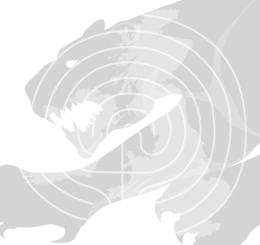Pseudoscience
| Quote: | |
| Quote: |
| Pseudoscience is any body of knowledge, methodology, belief, or practice that claims to be scientific or is made to appear scientific, but does not adhere to the basic requirements of the scientific method. |
Do you think that there is any part of the paranormal subject matter that could fall under Pseudoscience?




Pseudoscience
The problem is that if something ‘paranormal’ is explained scientifically, it then becomes ‘normal’. Nevertheless, that should be the aim of paranormal researchers.
Pseudoscience
Great post
There are many ways to spot what counts as pseudoscience. Perhaps the most important (following the issues outlined by Philosopher Karl Popper) is that any claims must be falsifiable. In other words, I should be able to devise a test to investigate any claim, measure it, test it, and prove it true / false. If it is not falsifiable – it is not science.
There can be some confusion over this issue of course…..
Now – some aspects of science are indeed ‘difficult’ to falsify. Under these circumstances however, reasoned arguments from related work and logical predictions would still suffice. However, the gap between reason and evidence must always be minimal in these instances. There is nothing wrong with speculation – provided you speculate from a sound empirical basis.
If I make the claim that psychics and mediums have problems with their brains (for whatever reason) and this leads them to report strange experiences – then I would have to furnish this claim with sound evidence to support it. If I do not – then I am not providing a sound argument in the true scientific sense of the word – though my claim itself is still falsifiable…..
If someone were to make a claim that the psychic ability is real its just too ‘subtle’ to be measured by all the scientific methods we have – they are in fact generating a non-falsifiable hypothesis and as such – its pseudoscience.
Pseudoscience
Thanks Ophiel I think that demonstrates it perfectly as I understand it.
So, as in your hypothetical example of pseudoscience above with the claim of psychic ability being too subtle to be measured, this could in fact be true (and lets be very clear, I am not making this claim). Therefore, is there a place for pseudoscience as long as we recognise it for what it is?
Pseudoscience
Hi Ian
No – I am not saying there is any place for pseudoscience – I am merely pointing out what is known as the demarcation problem (Karl Popper). This problem relates to the line at which one crosses for ones research to be counted as science or pseudoscience.
You say that psychic ability being too subtle to measure could be true. But how do you know? Its untestable and thus – there is no evidence. Also many so called psychic effects seem strong (PK / ESP) etc, which would certainly imply a measurable effect – or to put it another way, an effect that should be easily measurable by normal means. Lets face it, the paranormal is supposed to interact with this world in a fashion that leads to observation. We have techniques and tools that can measure effects far weaker than human perception so there really should be no problem here.
The logical position is – the absence of evidence is meaningless, it could mean true / false equally – so don’t make non-falsifiable statements as those do not settle scientific questions.
In addition, I should point out that there are many other principles of what counts as science including, replicability, reliability, validity, soundness, comprehensiveness of evidence, and so on. Tick all these boxes and falsifiability and you will be doing science.
Pseudoscience
I’ve always been hazy about what pseudoscience is. I understand what is scientific and what isn’t but not what pseudoscience is. I’ve always thought it was when people misused scientific ideas to make a spurious claim eg. saying a face cream works because of quantum physics.
Pseudoscience
I agree. These are all pseudosciences
Astrology
Psychic healing
Dowsing
Flat-earth society
Crystal healing etc
Morphic fields
just as a guide….
Pseudoscience
I thought that would be the case but I had to check

Pseudoscience
The problem with dowsing is that it doesn’t even qualify as a pseudoscience.
For example astrology has a certain set of rules by which you can "divine" a person’s life. There are a few schools of thought but basically the set rules are always the same.
Every single dowser has his/her own methods: of course the final goal is always to find water but there are no set rules, no common approach. I’ve already related the case of a dowser who would feel "violently ill" when passing over a submerged source of water, but there are many others, using pendulums, divining rods or other even stranger methods. Some claim to be able to work in any condition, others seem incapable to do anything without their diving instruments, other still will only work in particular conditions (full Moon etc). Also most dowsers cannot offer an explanation for their alleged "gift".
Like shamanic religions it’s very interesting and the goals are always the same but methods and approaches vary wildly.
We forgot to mention as pseudoscience the whole Planet X/Nibiru crowd led by Zacharia Sitchin. What has always astounded me about Mr Sitchin is his metamorphosis. He has an academic degree in Economics, has written about Economics history and has been an habitual speaker on Economics on various Israeli radio stations.
How he started decoding cuneiform tablets (it appears that his transalations are basically correct and he just "embellish" the text "a little") and how he came to believe that mysterious aliens from an astronomically impossible planet could create mankind is one the greatest mysteries for me. Of course he made a good bundle, but he wasn’t in want and coming up with the whole story must have costed him a lot of time and effort.
What’s even more astounding is how many apparently sane persons followed his call: even my father, who’s a vowed atheist, doesn’t believe in ghosts, monsters or whatever, has a bookshelf full of Sitchin volumes. Worse yet, he even went all the way to Texas to attend one of the old man’s seminaries.
Better than me: tonight I have a UFO conference to attend, but at lest it’s three miles from home…